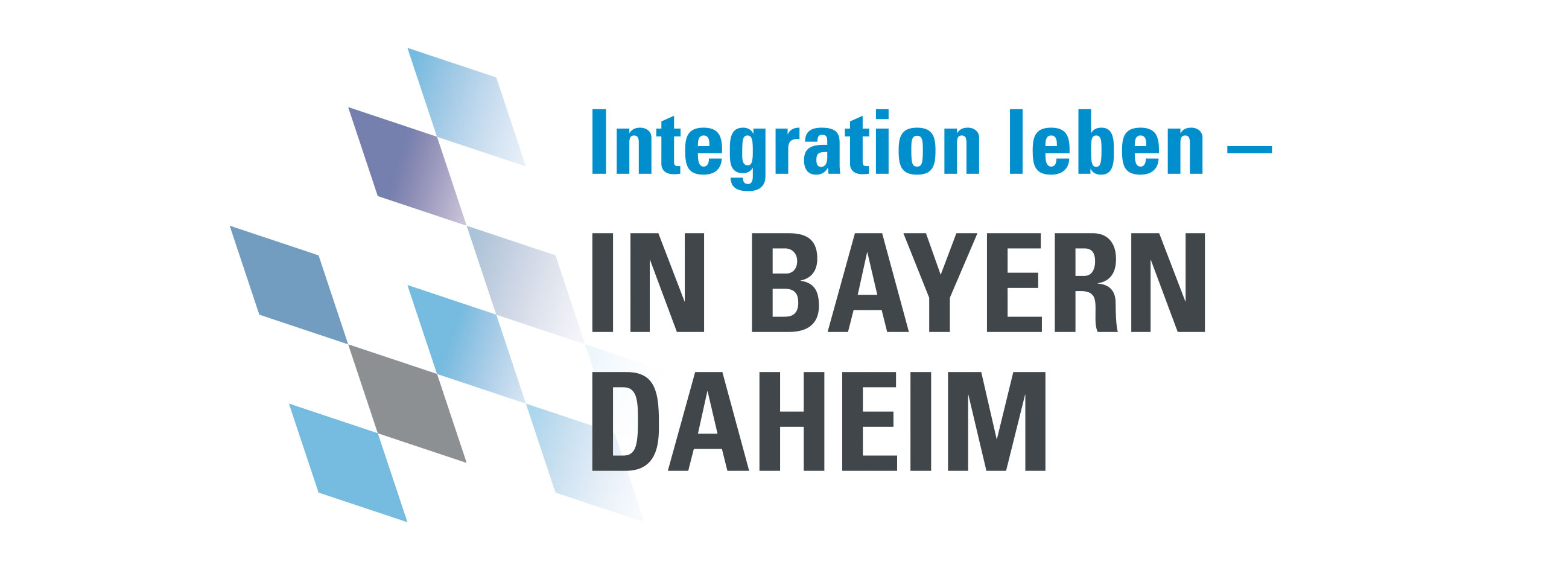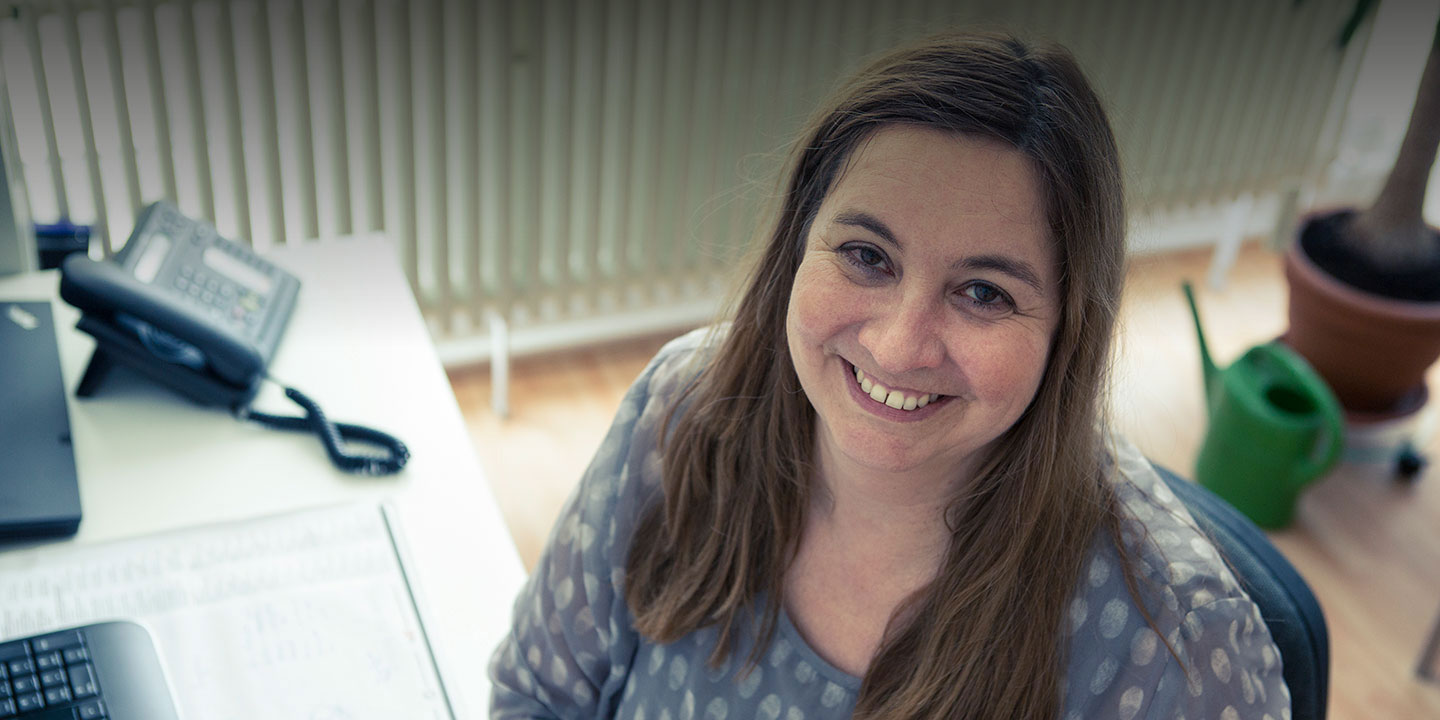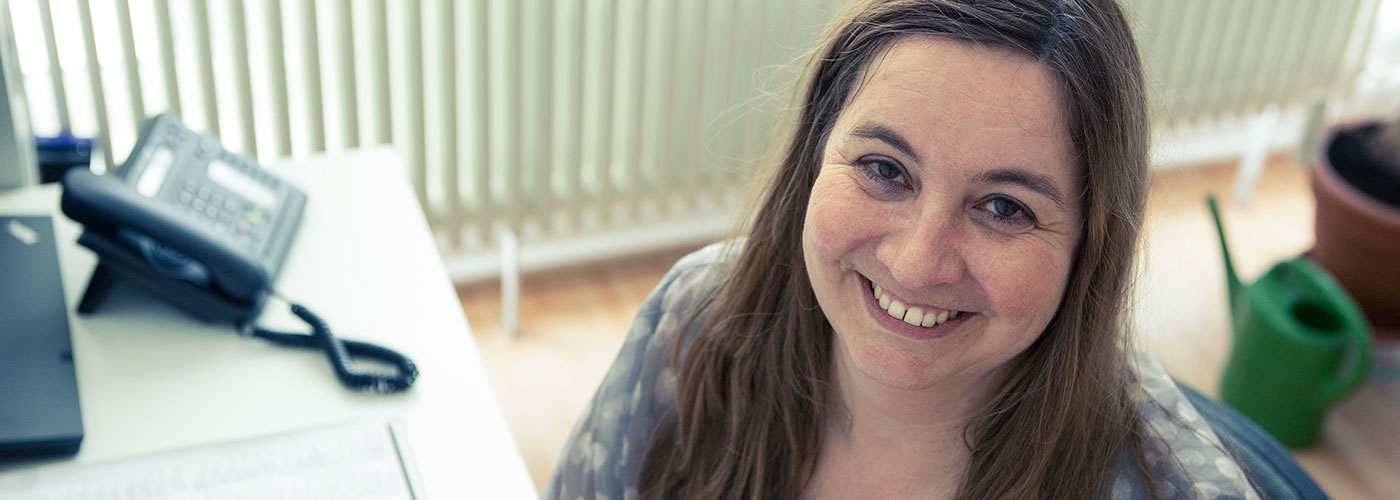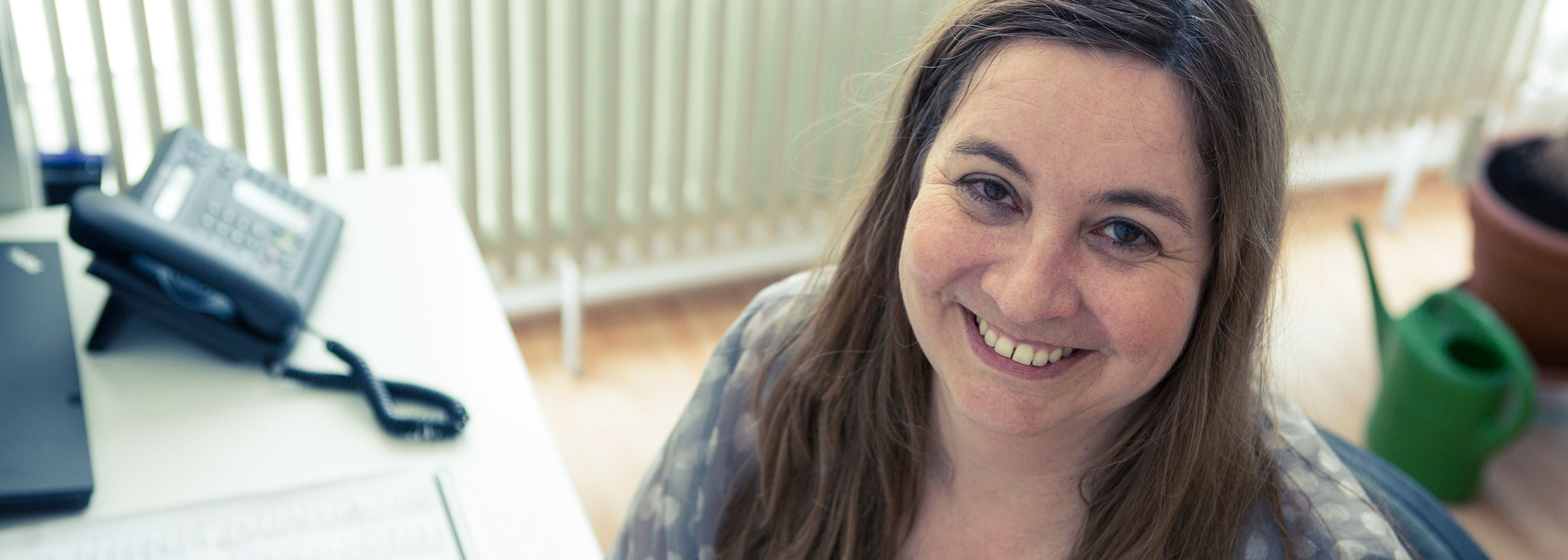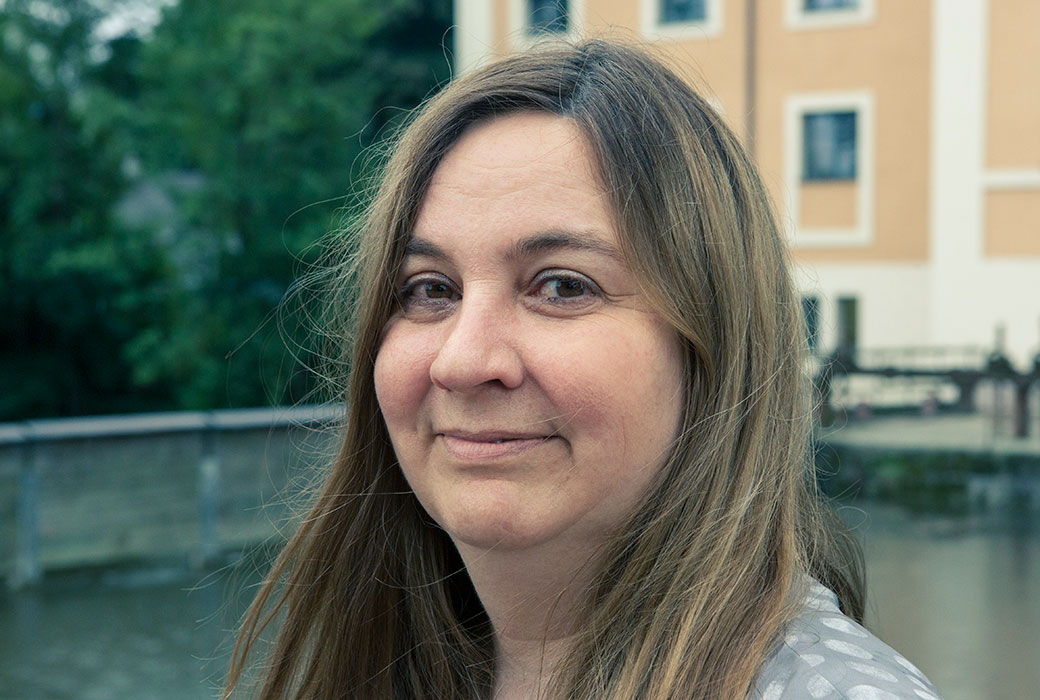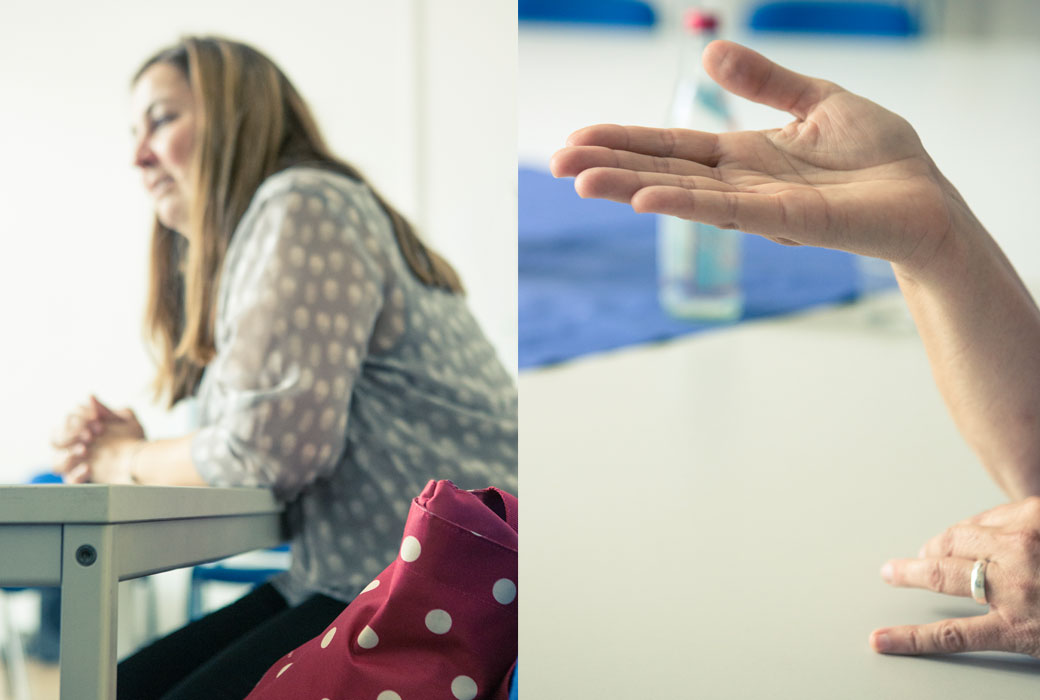
Main content
Success stories made in Bavaria
After around two and a half years as a social worker for asylum seekers at the Diakonie Rosenheim, Uta Busse can look back on a whole series of refugee success stories.
The interview was conducted in 2016.
Uta Busse has experienced real success stories: the 17-year-old young man who travelled alone from Afghanistan and was illiterate when he arrived in Bavaria but had learnt to read and write and also speak German within half a year. Young refugees who have started apprenticeships as an industrial mechanic, metal construction technician or warehouse clerk. The young woman from Afghanistan who lost both her parents at the age of nine and at just turned 20 was one of the only women to flee the country on her own. In a few months, this brave woman will finish her training as a nursing assistant and take an exam to conclude her German course. Or the student from Eritrea who is soon expected to continue his studies at the Ludwig Maximilian University in Munich.
Recognition of qualifications
Admittedly, it has not gone this well for all refugees. “Although many of them have some vocational training,” says Busse, “most of them arrived in Germany without any certificates. In addition, their qualifications are often not recognised here.” The level of education and training in Germany is actually significantly higher than in many of the countries from which the refugees originate. “There are now programmes for acquiring subsequent qualifications that make entering the job market easier”, explains Busse, who has a diploma in social education.
A huge demand for specialists
Uta Busse started work again after a long gap as a housewife and mother. “The job of social worker for asylum seekers was still a relatively new profession in 2014,” she says. Yet following the enormous influx of asylum seekers, there was a huge need for specialists. There was a great deal of work for Busse and her colleagues to handle when the refugees starting arriving. “I sometimes had more than 300 clients for a 30-hour week. It was almost impossible to manage.” The number has now stabilised at around 200 asylum seekers, which she can cope with to some extent. “Many refugees have already been here a long time and don’t need as much intensive support as they did when they arrived.”
Meeting nice people
Nevertheless, Uta Busse doesn’t have the time to make house calls. It’s a shame because her work has led to her meeting lots of nice people. “We should really have got to know each other better”, says Busse regretfully. Human contact is important to the social worker for asylum seekers. Uta Busse has built up trusting relationships with lots of refugees that make it easier for her to speak plainly when there are difficulties. And of course difficult situations do also arise. “The accommodation houses people of so many different nationalities under one roof that it is hardly surprising that it sometimes results in disputes”, says Busse. Often it is everyday issues such as cleanliness in the shared bathroom or a case of who has used how much space in the fridge.
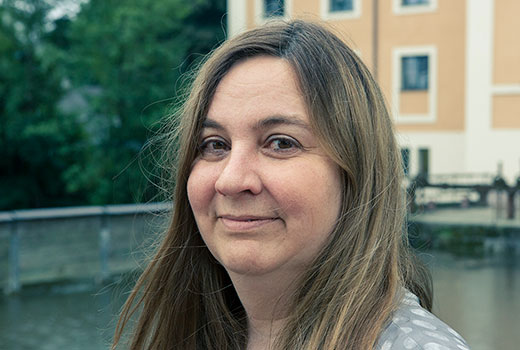
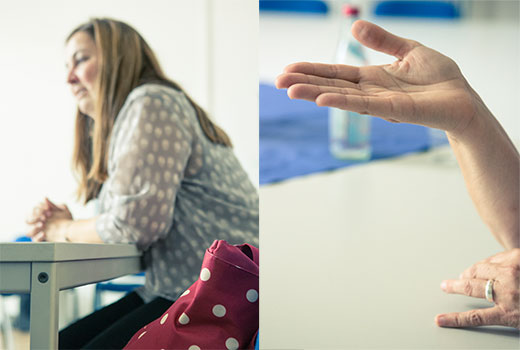
“Refugees also bring lots of good virtues with them to Germany, such as respect for old people, family unity and hospitality.”
In demand: punctuality, reliability and perseverance
Punctuality and reliability are an issue for some asylum seekers. “It has happened that I make an appointment and nobody turns up”, says Busse. “These traditional German virtues are not quite as important in other countries. Punctuality is considered unimportant in other parts of the world.” Busse and her colleagues then need to convey the importance of these values in Germany. This also includes patience and perseverance. Refugees need both of these before they can fit in properly in Bavaria and ideally find a job and an apartment. “On the other hand, refugees also bring lots of good virtues with them to Germany, such as respect for old people, family unity and hospitality.”
Equal rights: a question of internal attitudes?
A new aspect for many asylum seekers is, however, the subject of equal rights for men and women. “I have never experienced problems myself because I am a woman”, says Busse. “But I know that refugees and locals are often uncertain about how to behave correctly.” Friendships between men and women simply do not exist in other cultures according to Busse. “If a person has grown up differently, it is not possible for them to change overnight.” Information and education are important to ensure that equal rights are not just accepted but also to change the internal attitudes held by refugees about gender roles. “Education is the key. It is possible to achieve anything through education”, of this Busse is convinced. “Successful integration in my opinion requires the three aspects of education, language and making German friends.” And all of this needs time.
